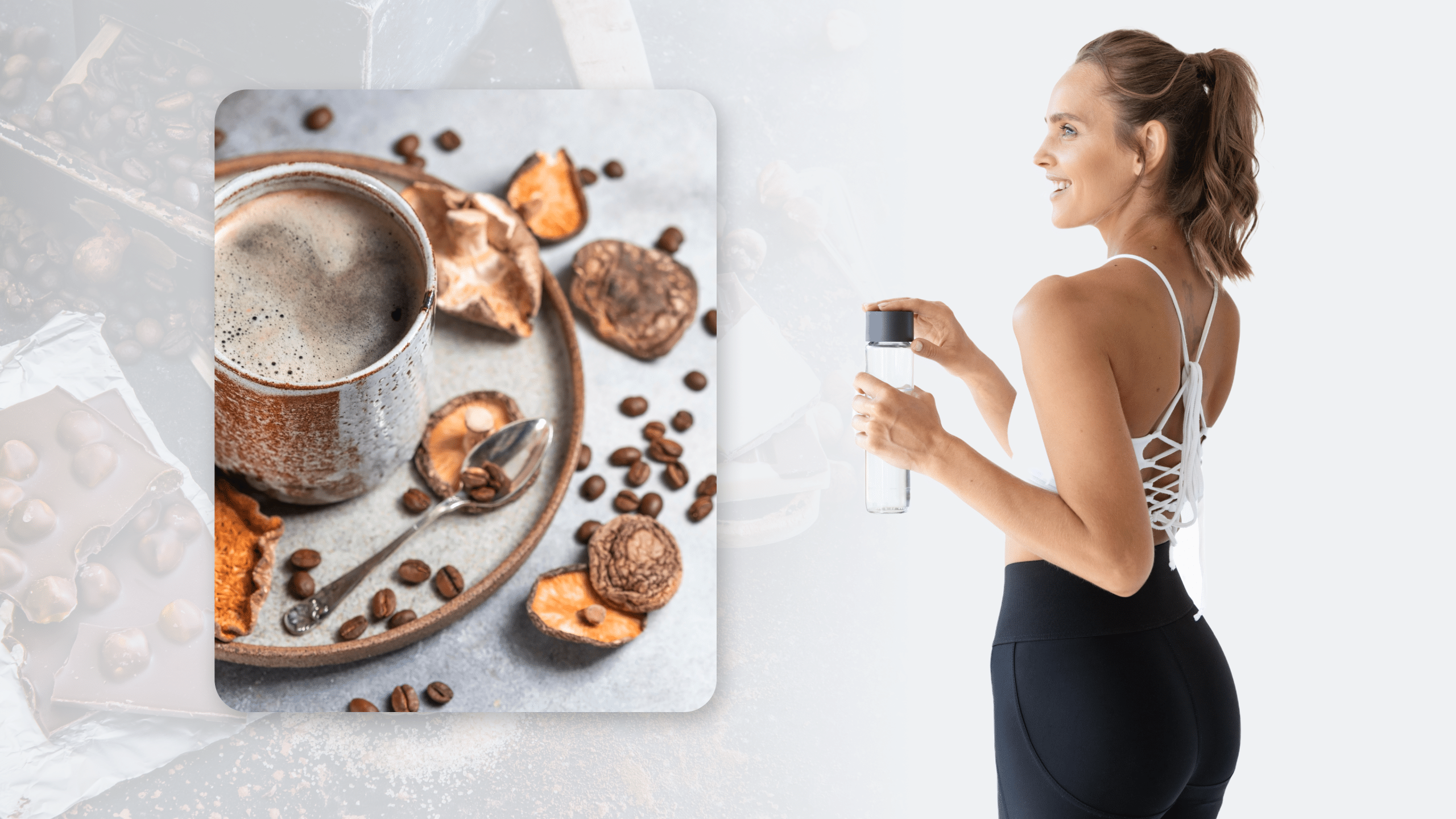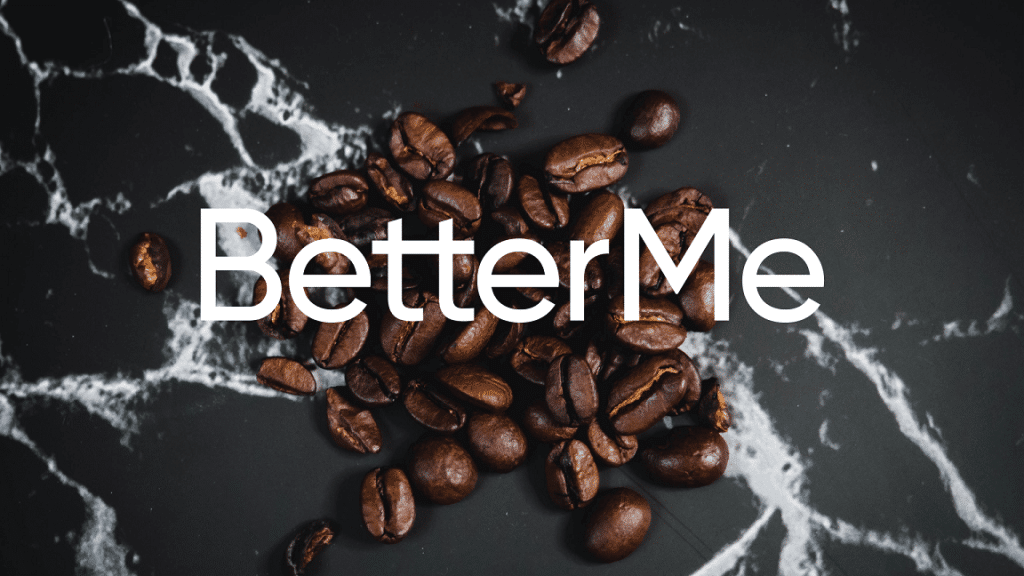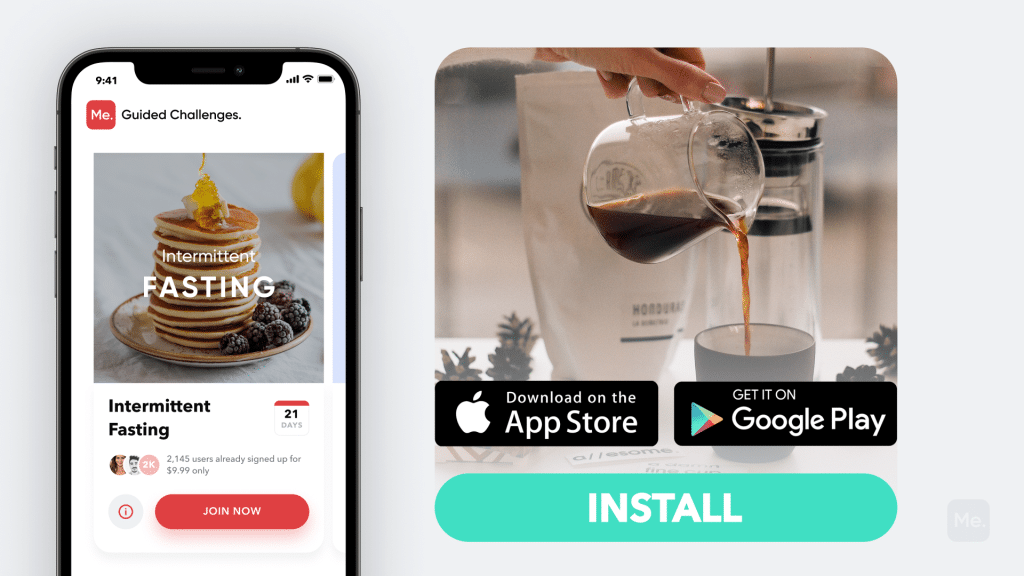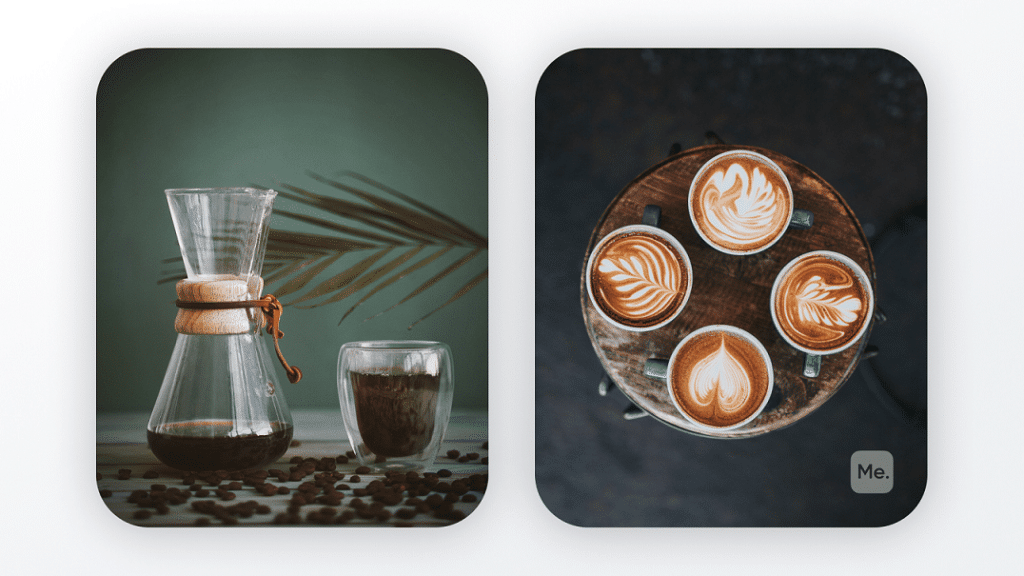Coffee beans aren’t actually beans. They’re the pits of coffee berries. Calling them seeds is more accurate than beans. And yes, you can eat coffee seeds, but there are a few things you need to know first.
Eating coffee beans is not new—in fact, people have been doing it for centuries. They would mix the whole beans with animal fat and eat them as a snack. This provided them with sustained energy throughout the day.
Nowadays, seeing coffee lovers munching on a handful of beans is not as common, but it’s still something some people do. Some do it for the caffeine kick or because they like the taste. Others might think that eating coffee beans has health benefits.
While there may be some potential benefits to eating coffee beans, there are also some risks you need to be aware of. This article will take a closer look at both.
Potential Benefits of Eating Coffee Beans
All the possible benefits of ground coffee are amplified when you eat the whole bean. The rapid absorption through the lining of your mouth means you’ll get a quick hit of caffeine and other components. The beans are:
A Good Source of Antioxidants
Coffee beans are a good source of antioxidants. These are nutrients that protect your cells from damage that is caused by free radicals. Free radicals are unstable molecules that can build up in your body and contribute to chronic diseases such as heart disease and cancer (11).
May Boost Brain Function
Eating coffee beans may help boost your brain function. This is due to the high levels of caffeine they contain. Caffeine is a psychoactive substance that has been proven to temporarily improve mood, alertness, and memory (17).
May Help You Burn Fat
Coffee beans may cause you to burn fat. This is because they contain a substance called chlorogenic acid. This substance is believed to boost metabolism and increase fat burning.
One study found that consuming coffee high in chlorogenic acid may have helped participants lose abdominal fat (9).
May Protect Your Liver
Eating coffee beans may help protect your liver. This may be due to the high levels of antioxidants they contain. Antioxidants help neutralize harmful toxins that can damage your liver cells (10).
May Improve Your Physical Performance
Eating coffee beans may support improved physical performance. This is due to the high levels of caffeine they contain. Caffeine has been shown to help increase endurance and reduce fatigue (5).
Find out the potential Coffee with Cinnamon Benefits for weight loss, insulin regulation, and more.
Risks of Eating Coffee Beans
While there are some potential benefits to eating coffee beans, there are also some risks you need to be aware of, including:
High in Caffeine
Coffee beans are high in caffeine. Caffeine is a psychoactive substance that can have side effects, including insomnia, anxiety, and headaches (3), (7). If you’re sensitive to caffeine, it’s best to avoid eating coffee beans. If you’re pregnant or breastfeeding, talk to your doctor about how much caffeine intake is safe.
May Cause Digestive Issues
Eating coffee beans may also cause digestive issues. This is due to the fact that they’re difficult to digest. Coffee beans can cause symptoms such as bloating, gas, and stomach pain. They can also have a laxative effect. You may experience diarrhea if you eat too many coffee beans (18).
Sleep Disturbance
Eating coffee beans may also create sleep disturbance. This is due to the high levels of caffeine they contain. Studies have found that those who are sensitive to caffeine may have difficulty falling asleep and staying asleep (1). If you’re sensitive to caffeine, it may be best to avoid it in the afternoon or evening.
Pregnancy
Eating coffee beans is not recommended during pregnancy, due to the fact that they are high in caffeine. Caffeine can cross the placenta and may increase the risk of miscarriage, low birth weight, and stillbirth (13).
If you’re pregnant, it’s best to avoid eating coffee beans and discuss caffeine intake with your doctor.
Increased Worry
Eating too many coffee beans can lead to increased restlessness, nervousness, and irritability. You may also experience physical symptoms such as a rapid heart rate and tremors (3).
BetterMe App helps you achieve your body goals with ease and efficiency by helping to choose proper meal plans and effective workouts. Start using our app and you will see good results in a short time.
How Many Coffee Beans Can You Eat?
The amount of coffee beans you can eat will depend on your tolerance for caffeine. If you’re sensitive to caffeine, it’s best to start with a small amount and increase gradually as needed.
It’s also important to drink plenty of water when eating coffee beans. This will help prevent dehydration and digestive issues (18).
The amount of caffeine in beans varies depending on the type of bean. For example, Arabica beans contain less caffeine than Robusta beans.
Chocolate-covered coffee beans also tend to be lower in caffeine than regular coffee beans. However, they are also relatively high in calories and sugar.
If you’re consuming caffeine through other sources, such as coffee or tea, it’s important to factor this into your choices. Consuming too much caffeine can lead to side effects such as anxiety, headaches, and insomnia (3).
So balance is key. You don’t want to consume too many coffee beans, but you want to get the benefits. The best way to find your sweet spot is to start with a small amount and increase gradually as necessary.
Which Coffee Beans Are Edible?
There are many different types of coffee beans, but not all of them are edible. The most common type of edible coffee bean is the Arabica bean. Other types of edible bean include:
- Robusta
- Liberica
- Excelsa
- Chinook
- Bourbon
These beans are typically roasted and ground before being used to make coffee. However, they can also be eaten raw.
When selecting coffee beans to eat, you should avoid green beans as they are unripe and may cause stomach upset.
When choosing coffee beans to eat, look for beans that are:
- Dark brown or black in color
- Uniform in size
- Free of blemishes or defects
- Plump and firm to the touch
- Free of any foreign objects
How to Eat Coffee Beans
There are many different ways to eat coffee beans. The most popular way is to simply pop them in your mouth and chew.
Another option is to grind the beans into a powder and sprinkle this onto other foods. This can be done using a coffee grinder or a mortar and pestle.
You can also add coffee beans to baked goods or smoothies. Just make sure to grind the beans first to prevent them from damaging your teeth.
Some coffee bean recipes include:
Chocolate-Covered Coffee Beans (16)
As the name suggests, these beans are simply coffee beans coated in chocolate.
Ingredients
- 1 cup whole roasted coffee beans (medium or dark roast)
- ½ cup dark chocolate chips
Instructions
- Place the chocolate chips in a microwave-safe bowl.
- Heat in the microwave for 30 seconds, then stir until smooth.
- Add the coffee beans to the chocolate and stir until evenly coated.
- Place the beans on a baking sheet lined with parchment paper and refrigerate for 30 minutes, or until the chocolate is firm.
- Store in an airtight container in the refrigerator for up to 2 weeks.
This recipe is courtesy of roastycoffee.com
Whether you’re looking to simply pep up your fitness routine, jazz up your diet with mouth-watering low-calorie recipes or want to get your act together and significantly drop that number on your scale – BetterMe app has got you covered! Improve your body and revamp your life with us!
Dirty Chai Chocolate-Covered Coffee Beans (16)
Dirty chai refers to a type of coffee that is made with espresso and spices. This recipe takes this concept and combines it with chocolate-covered coffee beans.
Ingredients
- 1 cup whole roasted coffee beans (medium or dark roast)
- ½ cup dark chocolate chips
- ½ teaspoon ground ginger
- ¼ teaspoon ground cardamom
- 1 teaspoon ground cinnamon
- Sprinkle of black pepper
- Sprinkle of ground cloves
Instructions
- Place the chocolate chips in a microwave-safe bowl.
- Heat in the microwave for 30 seconds, then stir until smooth.
- Add the spices and stir until evenly mixed.
- Add the coffee beans to the chocolate and stir until evenly coated.
- Place the beans on a baking sheet lined with parchment paper and refrigerate for 30 minutes, or until the chocolate is firm.
- Store in an airtight container in the refrigerator for up to 2 weeks.
This recipe is courtesy of roastycoffee.com
It’s important to keep in mind that weight loss occurs as a result of using a combination of diet and exercise to create a calorie deficit. Learn about the 4 macronutrients that are essential for health and how a healthy diet contributes to a healthy weight.
FAQs
How many coffee beans can you safely eat?
You can eat as many (or as few) coffee beans as you like, but it’s important to consider the potential health effects of consuming large amounts of caffeine. According to the FDA, most healthy adults can safely consume up to 400 milligrams of caffeine per day, which is equivalent to approximately four cups of brewed coffee or 10 cans of soda (15).
However, the amount of caffeine in a single coffee bean can vary greatly depending on factors such as roast level and type of bean. On average, one coffee bean contains 6 milligrams of caffeine. This means you would need to eat over 60 coffee beans to reach the recommended daily limit set by the FDA.
It’s also important to note that caffeine affects people differently, so what may be a safe amount for one person could have negative effects on another. Consuming too much caffeine can lead to symptoms such as restlessness, anxiety, and disrupted sleep patterns (3), (7).
In addition to considering the caffeine content, it’s important to consider how you consume the coffee beans. Eating whole coffee beans can be difficult for your digestion and may not provide the same benefits as brewed coffee. It’s also worth noting that many flavored or coated coffee beans may contain added sugars and other ingredients, which may impact your health in different ways.
So there’s no set limit for how many coffee beans you can safely eat, but it’s important to be mindful of your overall caffeine intake and note your body’s reactions.
Do coffee beans go bad?
Yes, coffee beans can go bad. The shelf life of coffee beans depends on several factors such as the type of bean, how it was stored, and the roast level. Generally, whole roasted coffee beans can last anything from 6-9 months when stored properly in a cool, dark place.
However, after this time period, the quality and flavor of the beans may deteriorate. Eventually, they’ll lose their distinct aroma and taste stale or rancid. This is due to a process called oxidation, where exposure to oxygen breaks down the oils and flavors in the beans.
To extend the shelf life of your coffee beans, it’s important to store them in an airtight container away from light and heat sources. It’s also recommended to grind the beans right before brewing for maximum freshness.
If you notice that your coffee beans have a sharp or unpleasant odor, it’s best to discard them as they may have gone bad.
Check out our previous post Healthy Ways to Sweeten Coffee to learn different ways you can enjoy your favorite beverage.
Do raw coffee beans contain caffeine?
Raw coffee beans contain caffeine. In fact, caffeine is naturally present in over 60 plant species, and the coffee plant is just one of them (8). Caffeine is a natural pesticide for the coffee plant that protects it from insects and other pests. It’s also believed that caffeine may help attract pollinators to the flowers of the coffee plant (o).
But how much caffeine is in raw coffee beans? The amount can vary depending on several factors such as the type of coffee bean, how it was grown and processed, and the specific variety of the coffee plant (12). On average, a single raw coffee bean contains approximately 1-2% caffeine by weight.
Can you chew coffee beans for energy?
It is believed that by consuming the entire bean, including the outer layer and inner seed, you can get a more potent dose of caffeine compared to drinking brewed coffee. Some even claim that chewing coffee beans can provide a more sustained energy boost and help with weight loss. However, these claims are not supported by scientific evidence.
When you chew coffee beans, you’re essentially breaking down the outer layer and releasing caffeine into your mouth. This may lead to quicker absorption of caffeine, giving you a jolt of energy. However, this method may not provide sustained energy as the coffee beans are still being digested in your stomach.
Chewing coffee beans may also have negative effects on your dental health due to their hard texture and potential staining of teeth.
In addition, consuming large amounts of caffeine through chewing coffee beans can lead to negative side effects, such as restlessness and anxiety (3).
The Bottom Line
Coffee beans are safe to eat, but they should be consumed in moderation. This is due to the fact that they’re high in caffeine. Caffeine can have side effects, including anxiety, headaches, and insomnia. They aren’t recommended for everyone, so you should talk to your doctor before consuming them.
DISCLAIMER:
This article is intended for general informational purposes only and does not serve to address individual circumstances. It is not a substitute for professional advice or help and should not be relied on for making any kind of decision-making. Any action taken as a direct or indirect result of the information in this article is entirely at your own risk and is your sole responsibility.
BetterMe, its content staff, and its medical advisors accept no responsibility for inaccuracies, errors, misstatements, inconsistencies, or omissions and specifically disclaim any liability, loss or risk, personal, professional or otherwise, which may be incurred as a consequence, directly or indirectly, of the use and/or application of any content.
You should always seek the advice of your physician or other qualified health provider with any questions you may have regarding a medical condition or your specific situation. Never disregard professional medical advice or delay seeking it because of BetterMe content. If you suspect or think you may have a medical emergency, call your doctor.
SOURCES
- A Genetic Variation in the Adenosine A2A Receptor Gene (ADORA2A) Contributes to Individual Sensitivity to Caffeine Effects on Sleep (2007, onlinelibrary.wiley.com)
- A new brew: Evaluating the flavor of roasted, lab-grown coffee cells (2021, acs.org)
- Caffeine, mental health, and psychiatric disorders (2010, ncbi.nlm.nih.gov)
- Caffeine (ncbi.nlm.nih.gov)
- Caffeine and exercise: metabolism, endurance and performance (2001, pubmed.ncbi.nlm.nih.gov)
- Caffeine as a protective factor in dementia and Alzheimer’s disease (2010, ncbi.nlm.nih.gov)
- Caffeine consumption, insomnia, and sleep duration: Results from a nationally representative sample (2016, ncbi.nlm.nih.gov)
- Coffea arabica: A Plant with Rich Content in Caffeine (2017, intechopen.com)
- Coffee Abundant in Chlorogenic Acids Reduces Abdominal Fat in Overweight Adults: A Randomized, Double-Blind, Controlled Trial (2019, ncbi.nlm.nih.gov)
- Coffee consumption and health: umbrella review of meta-analyses of multiple health outcomes (2017, ncbi.nlm.nih.gov)
- Complex mixture analysis of organic compounds in green coffee bean extract by two-dimensional NMR spectroscopy (2010, onlinelibrary.wiley.com)
- Influence of Various Factors on Caffeine Content in Coffee Brews (2021, ncbi.nlm.nih.gov)
- Maternal Caffeine Consumption during Pregnancy and Risk of Low Birth Weight: A Dose-Response Meta-Analysis of Observational Studies (2015, pubmed.gov)
- Multi-parametric approach to identify coffee components that regulate mechanisms of gastric acid secretion (2012, onlinelibrary.wiley.com)
- Spilling the Beans: How Much Caffeine is Too Much? (n.d., fda.gov)
- THE COMPLETE GUIDE TO EATING COFFEE BEANS (2021, roastycoffee.com)
- The Neurophysiology of Caffeine as a Central Nervous System Stimulant and the Resultant Effects on Cognitive Function (2021, ncbi.nlm.nih.gov)
- The Use of Green Coffee Extract as a Weight Loss Supplement: A Systematic Review and Meta-Analysis of Randomised Clinical Trials (2011, ncbi.nlm.nih.gov)










